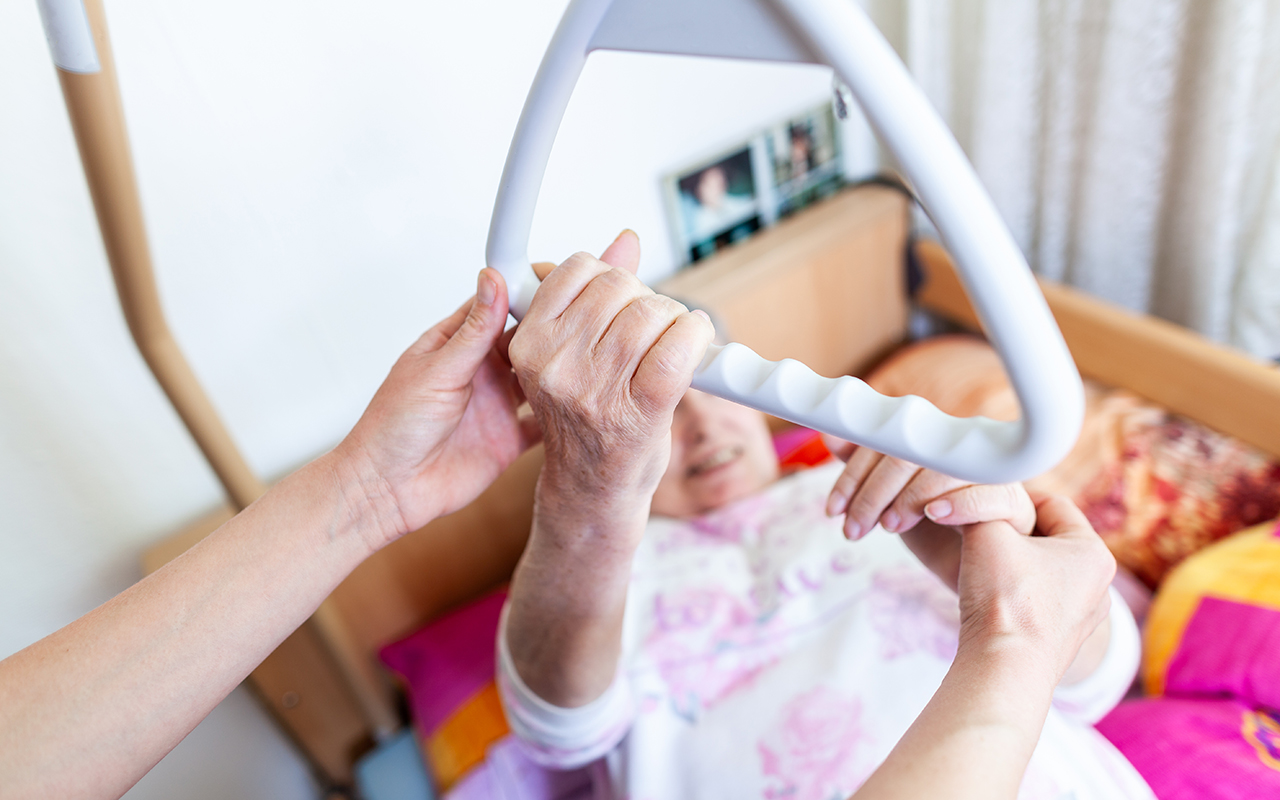Share
Trying to care for an aging loved one from a distance can present significant challenges. However, you don’t have to feel guilty about not being there every second. Here’s what you can do to meet your loved one’s needs without becoming overwhelmed.
1. Line Up Extra Help
The first thing to do is to accept you’re not superhuman and can’t cover every detail yourself. Evaluate what you can realistically handle, and seek outside help for all other tasks. This may include finding someone to deliver meals a few days a week, mow the lawn or clean the house.
If your loved one has medical concerns, it may be necessary to hire a certified CNA to monitor his or her condition and ensure medications are properly administered.
Hiring a certified in-home caregiver is a great option for many families. An in-home caregiver can provide companionship, as well as help with the following:
- Meal preparation
- House cleaning
- Bathing and toileting assistance
- Fall prevention
- Prescription reminders
- And so much more
When you reach out to Caring Home Care to provide assistance in matching your family with the perfect in-home caregiver we’ll discuss your loved one’s needs. If necessary we can help match you with a caregiver that is a certified Home Health Aide or a CNA.
2. Use Technology
Thanks to cell phones, text messaging and video chats, you don’t have to be physically present to “be there” for your loved one. Schedule regular times to talk so that you can both maintain a consistent connection.
To make managing finances and health easier, set up online banking accounts for your loved one, and see if you can obtain secure access to the patient portal provided by his or her primary caregiver.
3. Encourage Independence and Decision-Making
Doing everything for your loved one can create an unhealthy level of codependency. As long as he or she is still physically capable of bathing, dressing, and cooking without assistance, you don’t have to worry about arranging extra help for daily tasks.
Just be sure to listen when your loved one expresses a concern or complaint about some aspect of his or her care, and make changes as required to ensure comfort and safety.
Sometimes this will require reading between the lines to realize your loved one is starting to need daily assistance. For example, your loved one might mention sleeping on the couch instead of moving to the bed. What is the reason for that? Is it because there is a closer bathroom that he or she feels more comfortable accessing in the dark?
Keep the lines of communication open and ask questions to ensure you fully understand how your loved one is coping.
4. Prepare for Visits Ahead of Time
Time spent with your loved one should be both fun and productive. Discuss the visit in advance to plan what you’ll do together, and make yourself a list of things to check up on while you’re there. Pay attention to changes in health, and make time to talk with your loved one’s doctor in person for a detailed update.
Don’t beat yourself up if you can’t drop everything and be a full-time caregiver for your loved one. Everything you do to support his or her well-being is important, so focus on how you’re able to help from where you are, and let others handle the rest.
If you are unable to be there physically for your loved one, a certified in-home caregiver from Caring Home Care can provide you with peace of mind. Our caregivers can provide companionship along with meal preparation, prescription reminders, bathing and toileting assistance, and so much more. Learn more about our in-home caregiving services today.
How Caregivers Can Reduce Injury While Assisting Seniors Providing daily care for seniors is meaningful work. It can also be physically demanding. Many caregiver injuries happen during lifting, transferring, or repositioning seniors. These injuries are often preventable when proper techniques are used. Learning caregiver injury prevention strategies protects both the caregiver and the senior. It
Build a Caregiver Support Network: Finding the Help and Encouragement You NeedCaring for a loved one is one of the most meaningful and selfless things you can do. But being a family caregiver can also be emotionally, physically, and mentally draining. Whether you’re new to caregiving or have been doing it for years, building a
The Role of Respite Care: Supporting Caregivers and Seniors Caring for an aging loved one is an act of love, patience, and dedication. However, even the most committed caregivers need time to rest, recharge, and take care of their own needs. This is where respite care for caregivers plays a vital role. By offering temporary
Emotional Challenges of Caregiving Understanding and Coping with the Emotional Toll of Being a Caregiver Caregiving is one of the most rewarding roles a person can take on. It allows individuals to provide meaningful support to a loved one in need. However, it also comes with significant emotional challenges. Whether you’re caring for an elderly
Need A Caregiver? Fill Out Form Below
With our competitive rates, we make receiving in-home care affordable regardless of whether you’re using your insurance or paying out of pocket.










